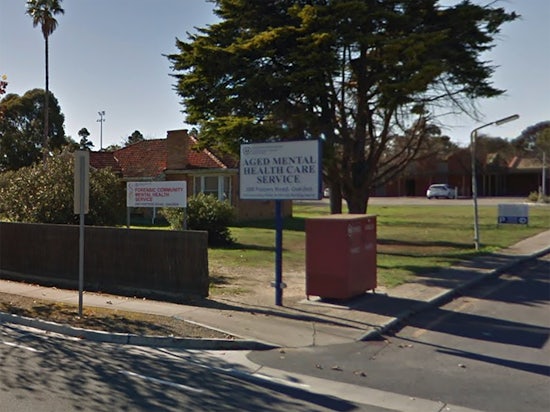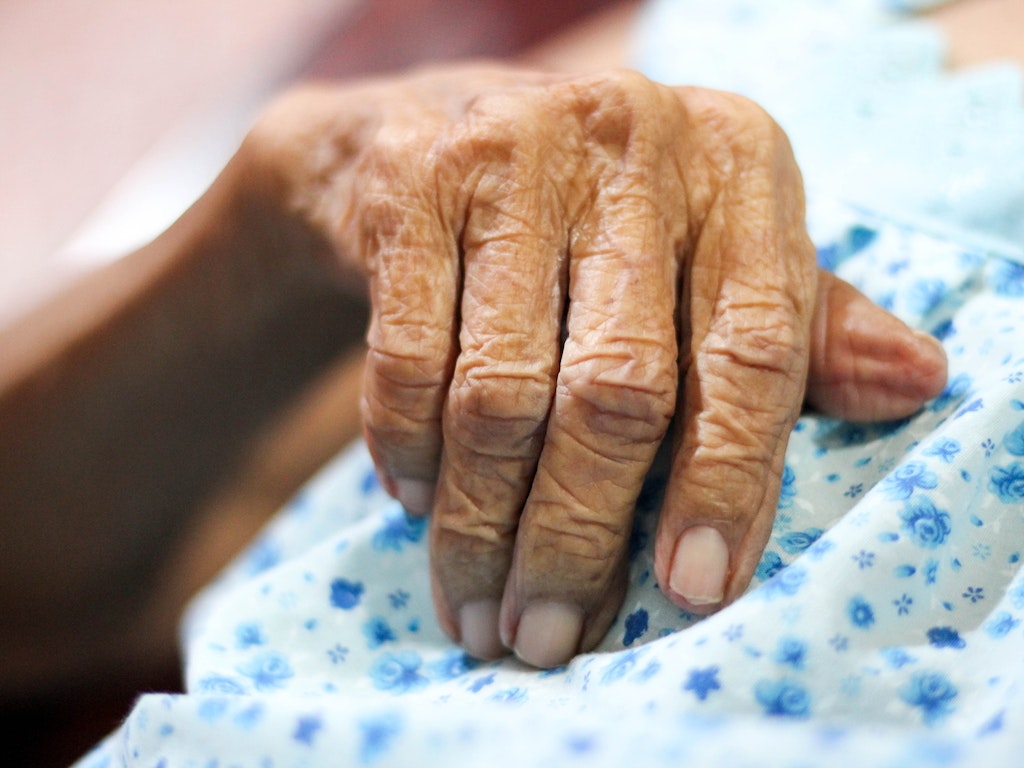Oakden report: “It should not have happened. It must never happen again.”
Shocking statements, personal experiences and finger pointing have all been outlined in the South Australian Independent Commission Against Corruption (ICAC) Report, painting a picture of life for some of the most vulnerable members of society who were “poorly cared for, forgotten and ignored” at the Oakden Facility, and how it went undetected for so long.

South Australia’s Oakden Facility has been under investigation for almost a year following serious breaches (Source: Google Streetview)
The report – ‘Oakden: A Shameful Chapter in South Australian History’ was released today by Independent Commissioner Against Corruption Bruce Lander and has not only provided a number of recommendations, but also insights into the horrors of Oakden and the management of the facility, as found in his investigations.
Mr Lander says the truths discovered about Oakden should leave every South Australian feeling “outraged”, adding that the facility was grossly substandard, that the state did not provide residents with a deserving level of care, and that some of the most frail and vulnerable people in the South Australian community were left without a voice, forgotten, ignored and left to live in a facility labelled a disgrace.
“What occurred at the Oakden Facility is a shocking indictment on its management and oversight,” Mr Lander says in his report.
“The report is necessarily long and detailed…it highlights systemic failings in processes and oversight that allowed the events at the Oakden Facility to occur for more than a decade largely without intervention.
“The evidence I received was astonishing.
“It pointed to a regime that existed whereby serious complaints about care were not appropriately addressed; mechanisms that are designed to ensure serious matters were escalated either failed or were simply not applied.
“Those directly responsible for the facility actively sought to manage matters ‘in-house’ [and] a culture of secrecy developed.”
Mr Lander continues, saying that while three staff members had “combined responsibility” for the management of the facility, none had authority over the other two and all parties had “other responsibilities” outside of Oakden.
He adds that it was an “extraordinary management structure” and that nobody had overall control over the facility, nobody had full time responsibility solely for Oakden, and that when the issues were brought to light, each of the three responsible for the management of the facility “sought to avoid responsibility by pointing the finger at the other two”.
The report also states that “what was occuring at the Oakden Facility was unknown to ministers and chief executives” – a truth that left Mr Lander astonished.
“They ought to have known,” Mr Lander says.
“Nevertheless each minister who had responsibility for the Oakden Facility is responsible for its failures.
“So too is each Chief Executive Officer who presided over the agency responsible for the facility.
“So too is each executive or manager who knew the woeful state of affairs and failed to take appropriate action to ensure than persons in authority, who were in a position and who had the power, ability and willingness to effect change, were informed.”
In the report Mr Lander also raises the question of why no one visiting the facility was aware of the extent of the problems, including the Northern Adelaide Local Health Network (NALHN) who were responsible for the facility in recent times, saying it has been a “troubling aspect of the investigation”.
“Why did not those from NALHN who visited the Oakden Facility form the same impression that I did?” he asks.
“When they visited they would have seen consumers in Makk and McLeay sitting, perhaps under restraint, in a corridor or alcove with only a television to entertain them. The consumers would be there all day.”

Council on the Ageing South Australia (COTA SA) has welcomed the report and its recommendations, saying it is a “significant step forward” in protecting the State’s most vulnerable.
COTA SA CEO Jane Mussared called Oakden a “tragedy” and says that the findings handed down in the report demonstrate failures at “just about
every level”.
“What happened at Oakden is nothing short of a tragedy and the release of this report again confirms that,” she says.
“The way we care for vulnerable and disempowered older citizens is a true measure of our society.
“The abuse, neglect, poor practices and appalling conditions suffered
by residents at Oakden will forever be a shameful blight on our state’s
history.”
Ms Mussared says she finds it hard to comprehend how such systemic
abuse could go on for as long as it did without intervention and despite
families repeatedly raising the alarm.
She also acknowledges, as mentioned by Mr Lander in the report, that
simply “closing the door” on Oakden leaves open the very real
possibility that similar failures could happen again.
“We must use the lessons of Oakden to ensure that our services for
vulnerable older people work with, not against, families, that
governance and accountability is clear, that they follow best practice,
that they are staffed by our very best people and that they are places
of safety and care,” Ms Mussared explains.
“Our accreditation systems need to be more robust to ensure families
can be 100 percent confident in the care of their loved ones.
“Oakden, during the time of the scandal, got full marks, and this put
a question mark over the credibility of the accreditation system that’s
designed to protect us and that we all rely upon as a measure of
quality.
“We need to put everything on the table, from the models of care, the culture, staff competency, governance and accreditation.
“Top-down failures mean we need to rebuild from the ground up and the time is now.”
Along with the 13 recommendations, Mr Lander’s report makes findings of maladministration against five individuals and the public authority (NALHN) responsible for the facility.
Despite finding each minister responsible for the Oakden Facility as responsible for its failings, the report states that the “evidence does not support a finding of maladministration in respect of any of them”.
The 13 recommendations are available via the 456 page report online, with Mr Lander suggesting that the report and all recommendations should be “considered by all public officers in positions of authority as there are salient lessons to be learned for any agencies”.










